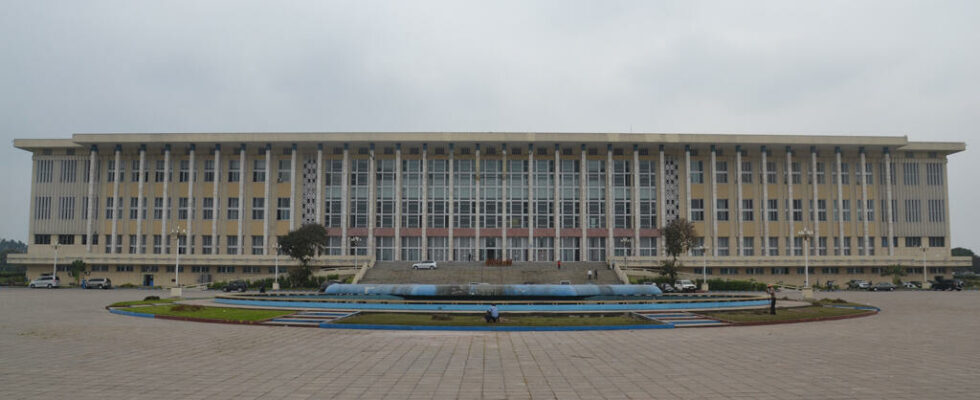In the DRC a first petition was submitted on Wednesday to the National Assembly to review the length of the presidential mandate and reform Congolese justice. It is a civil society organization which took the initiative for this political cause which provokes reactions within the opposition, civil society and the influential Catholic Church in the country.
2 mins
with our correspondent in Kinshasa, Pascal Mulegwa
The National Association of Victims claims to have collected 100,000 signatures, as required by law, to submit the issue for debate in the National Assembly. Signatures were collected across the country, according to the NGO led by Mhyrhand Mulumba. “ Quite a few constitutional provisions seem to be becoming obsolete and no longer adapt to current democratic realities, he explains to us.
We have noted that the five years granted to a President of the Republic to accomplish his mission or realize his vision are no longer enough. It is therefore more relevant to increase the duration of the mandate to seven years, renewable only once. »
If the current article 220 of the Constitution of the DRC was changed, it would also affect the independence of the judiciary, the form of the State, as well as the principle of universal suffrage. For those who have collected the first 100,000 signatures, the process will be long and complex.
Also readDRC: protest mounts against the constitutional revision project
Change the Constitution or change the president?
Several organizations close to power claim to have followed in the footsteps of the National Association of Victims to collect signatures.
If the main opposition figures have not yet come together to counter the ruling party in Kinshasa, the coalition of Martin Fayulu has already launched a series of awareness campaigns against this revision, under the slogan “ Let’s change Félix Tshisekedi and not the Constitution “. Today some fear that a revision of the Constitution will offer the current president the possibility of obtaining a third term.
Also readRevision of the Constitution in the DRC: “Can we afford it?”, question the bishops
